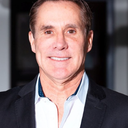Lower face/neck lift and SVT?
Hello, I am 67, female, 5', 100lbs, very fit, healthy, eat healthily, exercise, dancer, do not drink or smoke, look younger than my age. I want to have a face lift of lower face/neck and wondering if having SVT is an issue. I typically have about 4 episodes per year. Thank you.









